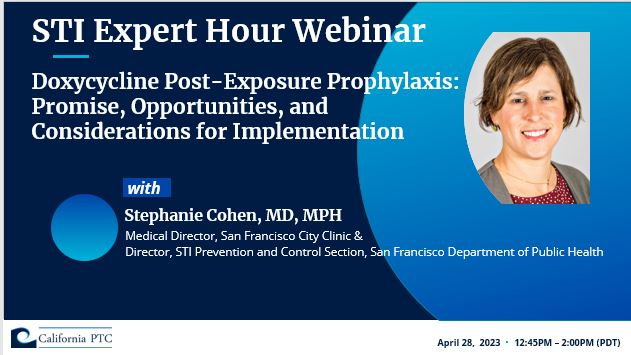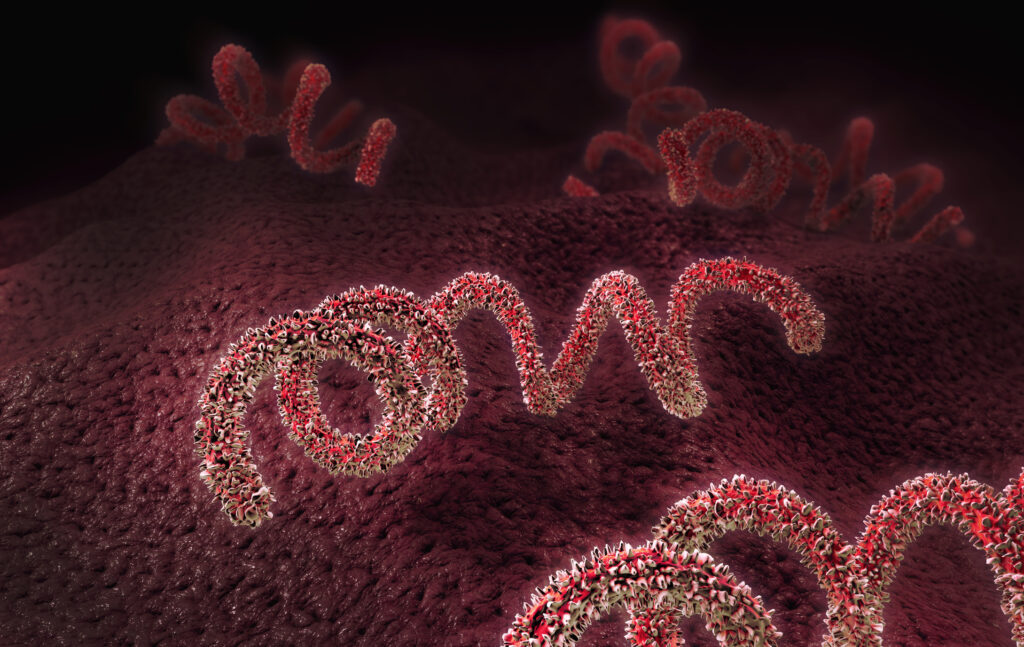STI Expert Hour Webinar on Doxycycline Post-Exposure Prophylaxis: Promise, Opportunities, and Considerations for Implementation
Friday, April 28, 2023, 12:45PM-2:00PM (PDT)
Learn about doxycycline post-exposure prophylaxis (doxyPEP), the newest innovation in the world of biomedical approaches to preventing sexually transmitted infections.Presentation by Stephanie Cohen, MD, MPH, Medical Director, San Francisco City Clinic & Director, STI Prevention and Control Section, San Francisco Department of Public Health
1.25 CME units at no cost.
Learning Objectives
- Summarize data from recent studies exploring the use of doxyPEP to prevent bacterial STIs
- Explore potential implications of and strategies for doxyPEP implementation in clinical settings
Please note: CME units not available for viewing the recording of the webinar


